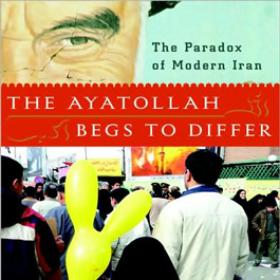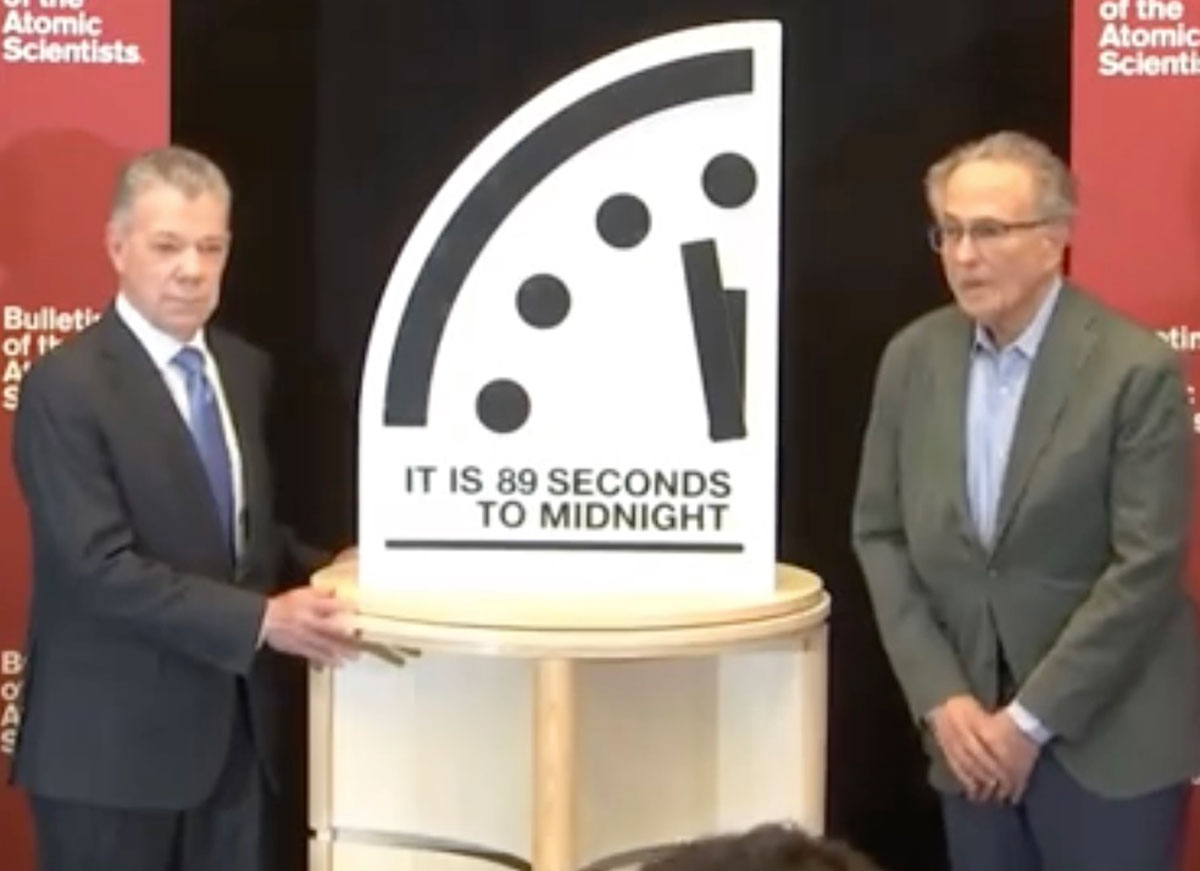The Ayatollah Begs to Differ By Hooman Majd

3/5
If there is anybody is qualified to take on the unenviable task of dropping some much needed knowledge on Americans about that big mystery in the Middle East, then Hooman Majd is that man. After being born and raised in Iran he moved to New York (via England) and rose to the top of the entertainment industry as Executive VP of Island Records where he remained for many years. Majd is extremely knowledgeable about both cultures and has spent his life moving between the two. Here he gives us a book that is part travelogue and part lecture on a culture that we as a nation know next to nothing about.
Sadly Majd wraps all this captivating knowledge around a flimsy storyline (call it "Cultural Learnings of Iran for make Benefit Glorious Nation of America" if you like) that fails to captivate. So even though the book is chock full of fluffy anecdotes and fascinating information Majd fails to create a cohesive experience. He cuts the difficulty level down by speaking to the audience and using an overtly conversational tone but much is still demanded of the reader in terms of familiarizing yourself with language and custom. For instance you will get to know terms such as Haj (largest annual pilgrimage to Mecca), ta-arouf (a somewhat impenetrable politeness that often grinds Iranian conversations to a halt), and Hijab (the covering of their women, from head to toe, in Islamic garb) on an intimate level. So while the lesson plan is daunting Majd works hard to water it down and then sweeten it for you.
As his subtitle states, Majd sets out to explore the modern paradox of Iran. But what the book ultimately becomes is an examination in all the ways that their culture differs from our own. For starters it is much more religious (and Islamic) and conservative, but he also goes in depth to show the differing views on topics such as drugs, dress codes, politics, technology and a multitude of other norms alien to us. The book is at its best, however, when Majd recounts his time spent hobnobbing with Iranian bigwigs.
Besides his prominent job in the music industry Majd also contributes to publications such as GQ and The New York Times, and has served as a consultant for the last two Iranian presidents. Those contacts have over the years got him into some rather privileged situations such as a sit down interview with President Ahmadinejad’s top media adviser Ali Akbar Javanfekr. During the interview Javanfekr gives a string of reasonable explanations for Ahmadinejad’s Holocaust denial but then squanders it all by confiding in Majd that he himself had done some independent research on the matter, and turns out the Holocaust really was a hoax.
Much time is also spent on the mutual distrust that is currently brewing between the US and Iran. This includes a history lesson that goes back to the Eisenhower era and the overthrowing of their democratically elected president Mohammed Mossadegh because he wanted to spend Iranian oil profits on…Iran, and goes up until 2007 when the US "found" a bomb in Iraq that was supposed proof that Iran was supplying Iraqi insurgents with weapons and support. These ghosts of America’s past if nothing else provide something of an explanation as to why the Iranian people support Ahmadinejad and his current nuclear buildup.
Majd clearly leans to the left in this book as he points out that a Gore presidency would have been much more understanding of Iranian internal politics. Whether this is because he is part of the Hollywood elite or if it’s a calculated move to distance himself from the enemy to sell more books in the US is a subjective idea. His largest point seems to be that we need not hate or feel superior to their culture because we are really only a few Bush terms away from it ourselves. The book itself, sadly, fails because it isn’t heavy enough for the intellectuals or light enough for the philistines and instead listlessly falls somewhere in between.
2 Comments
Leave a comment
RELATED ARTICLES
Get the most-revealing celebrity conversations with the uInterview podcast!





Although I generally don’t comment on reviews of my book, in this case, having been alerted to it, I’m compelled to, as reviewer has so many simple facts wrong.
It seems as though he may have read “through” the book rather than read it, for the kinds of factual errors indicate both a sloppiness in reading and in his writing of the review. Firstly, as mere glance at the dust jacket would indicate, I was not raised in Iran, rather, in the West. Secondly, the reviewer mentions Haj as a term one becomes intimately aware of (an issue I hardly bring up in the book), but fails to mention “haq”, or “rights”, one that I DO and is actually central to the understanding of the Iranian psyche, something most other reviewers have discovered. But most incredible is the reviewer’s assertion that Ahmadinejad’s top media advisor, Javanfekr, gives a multitude of explanations for Holocaust denial and the denies it himself, whereas in the book, in an early chapter where Javanfekr appears, I make it abundantly clear (and credit Javanfekr) that he DIDN’T do any such thing. It is in a much later chapter that a different man, a deputy foreign minister with a completely and unmistakably different name, Mohammadi, denies the Holocaust and tries to explain it away. Since an index is provided, a reviewer whose attention span is akin to a teenager with an iphone and cannot remember such salient facts, looking it up before taking pen to paper to write a review would have been a rather simple affair.
Finally, the reviewer suggests that the book isn’t “heavy enough for the intellectuals” (and many intellectuals would beg to differ, based on their reviews in such places as The Financial Times, The Economist, The Los Angeles Times, etc. etc., and by authors who have written for everything from The New Yorker to GQ), or light enough for the philistines. Interesting point, since intellectuals would, presumably, actually paid enough attention to have not confused the facts (and understood the issue of “haq”, for example, and not possibly mistaken it for the Haj). I have probably failed the philistines, though, for whom I have great affection (and might read “through” the book instead of actually read it), for it is now apparent that reading “through” it might confuse more than educate or entertain.
Lastly, I don’t know why the reviewer believes I am a part of the “Hollywood elite”, or why he believes my politics are a “calculated move” to sell more books. Anyone reading any of my writings (which thanks to Google are easily referenced), writings that pre-date the book and even the idea of the book, would not be surprised to see that my politics have not changed with the seasons.
Respectfully,
Hooman Majd
I will say that being publicly spanked by a published author is a good way to focus ones attention for the day and a great way to learn about the perils of sloppiness in reviewing. So with that in mind I do offer my heartfelt apology for wrongly attributing the quote to Javanfekr. Any excuse I may give (bad note taking is what I’m going with) will not be sufficient for you or for me and I promise to work hard to make sure it does not happen in the future. I will say however that my comment about the Hollywood elite was taken in completely the wrong way. I assure you my tongue was planted firmly in cheek (as it was with my comment about your politics) as I was attempting to ridicule those on the right who feel that anybody in the entertainment industry who holds a liberal view is automatically a “Hollywood elite” and perhaps using quotation marks would have been a better way of showing that. As for your growing up my attempt was to not only say that you were born in Iran but also with Iranian values. That said, even if I had an army of editors at my disposal the main thrust of my argument would not have been diminished…your book is intelligent and fun but left me wanting more in both departments, and with all the books out there in the world I simply could not recommend my readers spend their money or time on this particular book. I congratulate you on your good reviews in publications more prestigious than mine but it is not my job to kowtow to conventional wisdom. I happily spent my hard earned money on this book and reviewed it for free, I have nothing but respect for you and your work and look forward to reading you in the future. But…on this one project, in my honest opinion, I had to give you a mild thumbs down. Thank you for reading my review and hope to speak to you in the future.